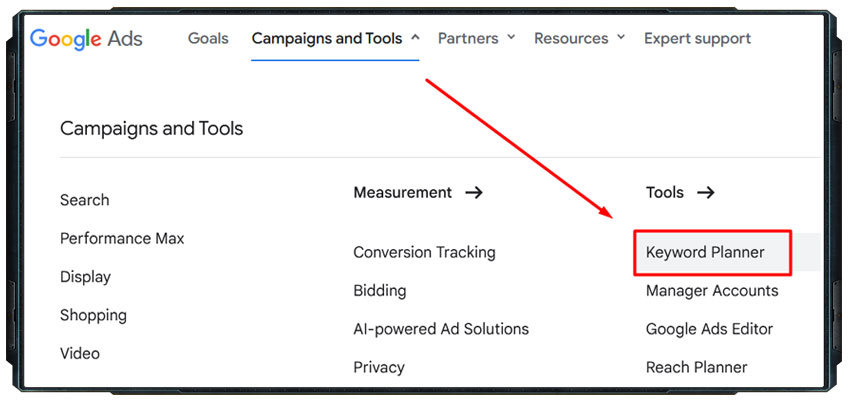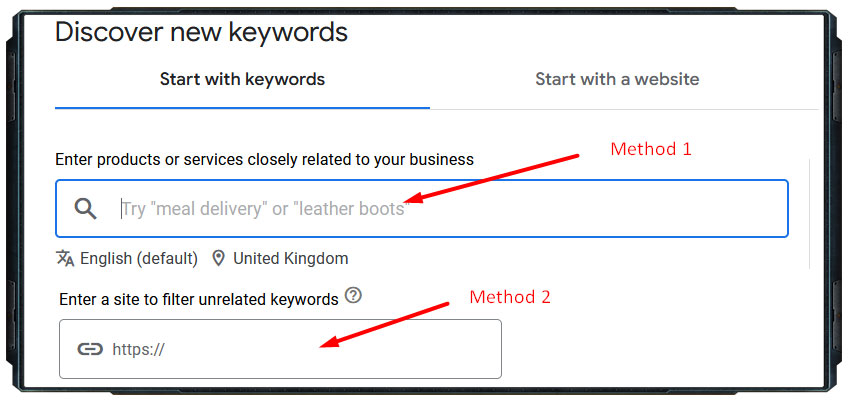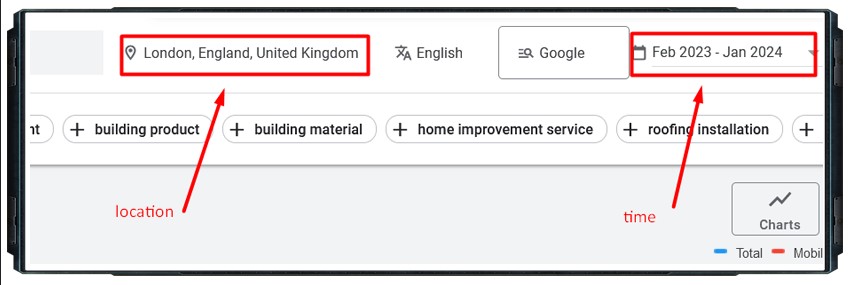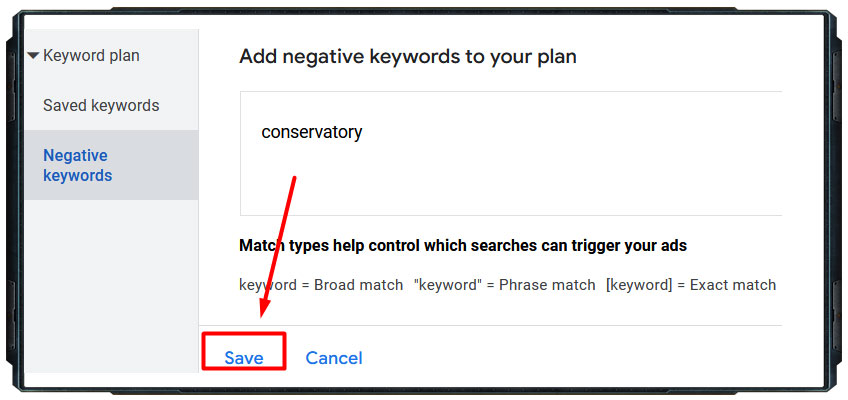
Are you investing in Google Ads but not seeing the results you expected? Chances are, your ads may be falling short because they’re not targeting the right keywords or filtering out the irrelevant ones.
In today’s guide, we’ll explore how you can leverage Google’s free Keyword Planner to uncover highly targeted local keywords and efficiently filter out negative keywords, setting the stage for successful ad campaigns.
Local keyword research holds immense significance, particularly for businesses offering services within specific geographic areas such as roofers, plumbers, landscapers, and more.
By focusing on local keywords, you can craft ads that resonate with your target audience, driving higher engagement and conversions. Check the video below –
How to do Local Keyword Research?
Let’s dive in and discover how you can become proficient in creating winning ads by targeting the right local keywords.
#Tip 1
Accessing Google's Keyword Planner

To begin local keyword research, log in to your Google Ads account and navigate to the “Tools & Settings” section.
Here, you’ll find the Keyword Planner tool, your gateway to uncovering valuable insights for crafting effective ad campaigns.
#Tip 2
Research on Local Keywords

There are two primary approaches to kickstarting your local keyword research journey.
The first method involves starting with a website, where you can input your competitor’s website URL to discover relevant keywords. Alternatively, you can start with keywords directly, which is the method we recommend for this guide.
Begin by entering your desired service, such as “roofing,” into the Keyword Planner. Google will generate a list of keywords related to your service, along withl metrics such as average monthly searches, competition level, and bid ranges.
#Tip 3
Fine-Tuning Your Keyword Selection

Now, it’s time to refine your keyword selection to focus exclusively on local terms. Switch the location setting to your specific town or county, ensuring that the data reflects the local search landscape accurately.
Additionally, consider adjusting the timeline to the “last six months” for more current insights.
#Tip 4
Building a High Buyer Intent Keyword List

As you peruse through the list of keywords, your objective is twofold: build a high buyer intent keyword list and compile a negative keyword list to filter out irrelevant searches.
Start by selecting keywords that align closely with your services, discarding those that aren’t relevant.
Then, proceed to create a negative keyword list by identifying terms you don’t want your ads to appear for.
For instance, if your roofing business doesn’t offer conservatory roof replacements, add “conservatory” to your negative keyword list.
#Tip 5
Creating Targeted Ad Groups
With your refined keyword lists in hand, it’s time to organise them into targeted ad groups, each centred around a specific service offering.
For instance, you might create separate ad groups for roof repairs, roof replacements, “near me” searches, and flat roofing.
#Tip 6
Crafting Dedicated Landing Pages
To maximise the effectiveness of your ads, ensure that each ad group directs users to a dedicated landing page tailored to their search intent.
For example, users searching for roof repairs should land on a page specifically addressing that service, while those looking for roof replacements should be directed to a corresponding landing page.
#Tip 7
Testing and Optimising Your Campaigns
Once your ads are up and running, closely monitor their performance and track conversions across different ad groups. Identify which ad groups are driving the most conversions and allocate your budget accordingly.
Continuously test and optimise your campaigns to refine targeting and maximise ROI.
Cornerstone of Successful Google Ads Campaigns
In conclusion, local keyword research is a cornerstone of successful Google Ads campaigns for businesses targeting local audiences. By leveraging Google’s Keyword Planner to uncover highly targeted keywords and filtering out irrelevant terms, you can create ads that resonate with your audience and drive meaningful engagement.
Mastering local keyword research empowers you to craft targeted ad campaigns that connect with your target audience, driving higher click-through rates, conversions, and ultimately, business growth. Start implementing these strategies today and watch your Google Ads campaigns soar to new heights of success.

Speak with our Marketing Expert
Got a quick question about lead generation and online growth
for your home service business? We can help.
Speak to one of our experts today on 01702 668207 or send us a message.
